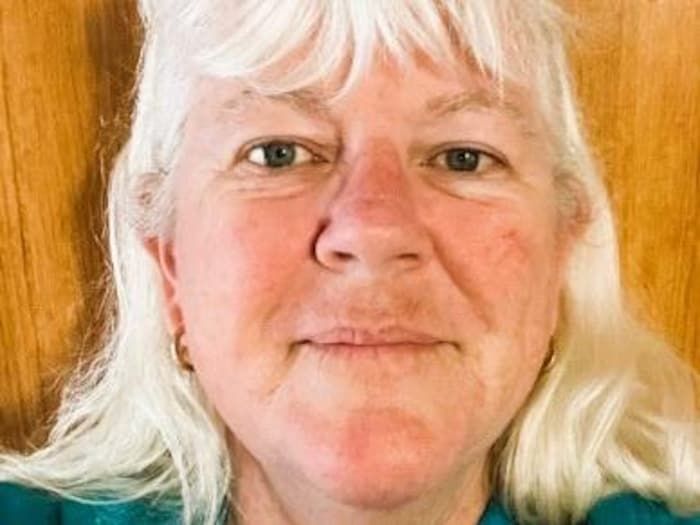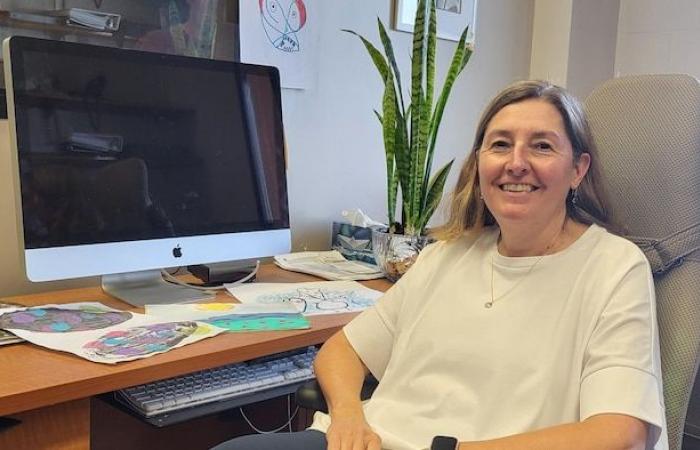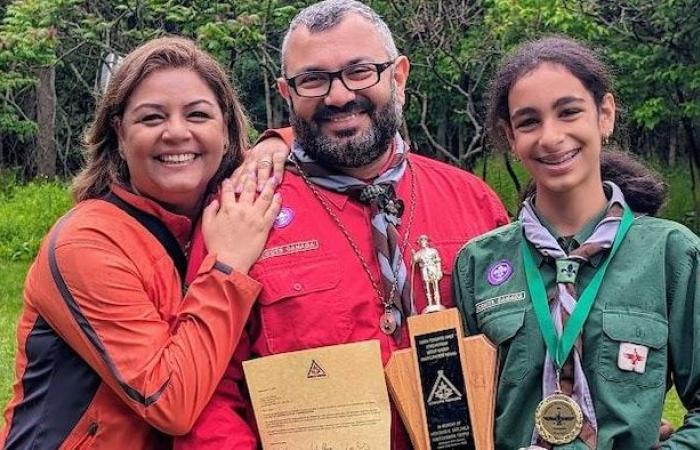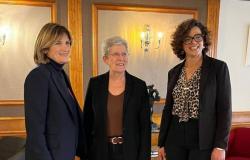A recent survey conducted by Scouts Canada reveals that 34.3% of Canadians doubt the ability of young people aged 10 to 21 to find a job or become fulfilled adults due to the impact of COVID-19. If pessimism is growing among those surveyed, some young people and stakeholders find this loss of confidence unjustified.
The survey, conducted in December 2024 among 1,000 randomly selected Canadians, highlights the link between COVID-19 and the development of this group of young people.
Open in full screen mode
Kashmira Bulsara, national commissioner of Scouts Canada, defends the potential of young people and emphasizes the need to support their development despite the challenges of the pandemic.
Photo: Courtesy of Kashmira Bulsara
Kashmira Bulsara, national commissioner of Scouts Canada, sees this result as unwarranted pessimism about the future of young people and says we should never underestimate the potential of Canadian children.
As a young person who has been through the pandemic myself, I find that I have been able to develop my soft skills appropriately
she declares.
I don’t feel like I’m late, and I think that, yes, some young people have been negatively affected, but not all. And I think it’s an understatement to say that we’re all suffering
she adds.
We are not a generation exhausted by the pandemic. I think we should have the opportunity to show that we have recovered
she continues, while pleading for a more optimistic vision of the future of young people.
Other figures from the survey conducted by Scouts Canada
- 91.2% of Canadians are concerned about the lack of social skills among young people aged 10 to 21;
- 94.7% of Canadians believe that children aged 10 to 21 have suffered growing disadvantage during COVID-19;
- Canadians cited social media, screens and lack of development, peer pressure, video games and overprotective parenting as the biggest dangers facing children today.
The resilience of young people facing the challenges of COVID-19
For Diana Coholic, professor of social work at Laurentian University and mental health practitioner, although COVID-19 has had an impact, young people remain resilient.
She recognizes that the absence of school for many months has affected some young people, emphasizing that For some children, learning online doesn’t work.
Open in full screen mode
Diana Coholic, professor of social work at Laurentian University, explains the importance of young people’s resilience in the face of the challenges of the pandemic, emphasizing that they have overcome many obstacles and can succeed.
Photo: Courtesy of Diana Coholic
However, she insists that generalizations should not be made. According to her, many young people have managed to overcome these challenges.
Kids are pretty resilient and we can tell you that a lot of kids have caught up, right? It’s not like this generation is doomed and could never succeed
says the professor.
She offers several solutions to support young people, such as mindfulness programs in schools.
The point of all this is to help children develop some basic skills they need, like paying attention to their ability to concentrate.
She says these approaches can help young people build resilience and learn life skills such as empathy, collaboration and problem-solving.
The importance of curiosity

Open in full screen mode
-Kerry Radey, Northern Ontario Council Commissioner at Scouts Canada.
Photo: Courtesy of Kerry Radey
Kerry Radey, Northern Ontario Council Commissioner for Scouts Canada, also agrees that Canadians underestimate the resilience and potential of children.
Don’t underestimate them. They are awesome. Young people are extraordinary and they can do incredible things.
According to her, children simply need activities that spark their curiosity.
I think if you have curious young people, who want to know how it works […] or how to make things better, then you have this incredible well of potential that you can then help, foster, develop and keep their curiosity
she said.
Because it’s when you stop being curious that you stop learning, that you stop progressing
she adds.
Group activities: a solution for youth development
Outdoor youth and volunteer activities, based on fundamental values such as solidarity, mutual aid and respect, offer an ideal framework for the acquisition of essential skills, as several young people point out.
You are not in an environment where you feel the pressure to be like everyone else, you are in nature, you are free. You are with people who live this experience like you
specifies Meher Zandian, 16, highlighting the impact of group activities on her leadership skills.

Open in full screen mode
Ava Ogra, 13, explains how scouting and group activities have boosted her confidence. She emphasizes the importance of living this experience as a family, with her father involved in the adventure.
Photo: Courtesy of Ava Ogra
Similarly, 13-year-old Ava Ogra talks about how group activities, including scouting, boosted her confidence.
You naturally learn to give your ideas and disseminate them, to share your ideas within the group.
She adds that these experiences allowed her to overcome personal challenges, such as during the pandemic, when she felt less alone thanks to exchanges with other young people.
The impact of this type of activity on personal development is also reflected in the testimony of Anahita Ogra, mother of Ava.
We learn teamwork, collaboration, we go beyond school, we think about real scenarios
she emphasizes.
For her, these educational and social experiences prepare young people to face real life with more confidence and resilience.








